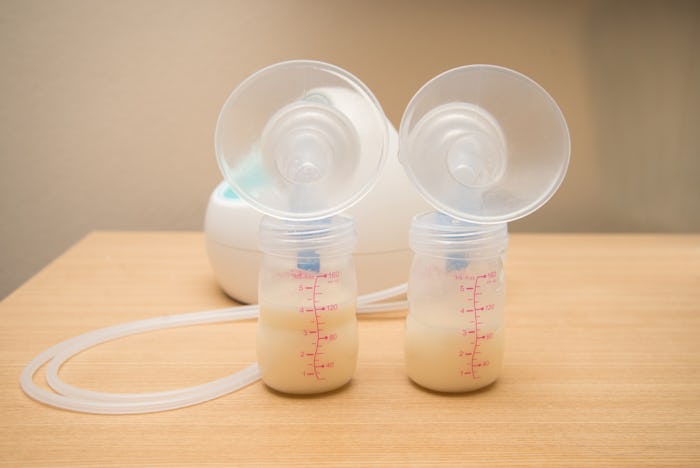Life

7 Myths About Increasing Your Milk Supply You Should Never Believe
I hate to break it to you, but you can't believe everything you read. Especially when it comes to motherhood, breastfeeding, and all things related to child rearing. People's opinions are valuable — though not always factual — and just because something worked for someone else doesn't necessarily mean it's rooted in unfaltering fact. Most moms have enough to worry about as it is, and if low milk supply is one such worry on your mind (as it is for most nursing moms), know that there are plenty of myths about increasing your milk supply you should never believe.
Although there are many moms who swear by certain methods of increasing your supply or others who are hell-bent on convincing you that your supply is low, most of these "methods" are hit and miss at best and mythical at worst. According to a study conducted by the Center for Health Disparities Research at the University of PA, many women have a "perceived notion of insufficient milk supply" that often causes them to stop breastfeeding earlier than they otherwise would have. These myths probably play a large role in that perceived notion.
As a new-ish mom myself, I can relate to the stress of a million different influencers pulling you in a million different directions. And though I'll never claim to have all of the answers, I've learned the importance of sifting through the conflicting advice I receive and applying only what truly works for me and my babies. Because motherhood is stressful enough without the "old wive's tales" (is that even a phrase anymore?) making you second guess yourself.
Myth #1: Certain Foods Will Definitely Affect Your Milk Supply
The key word here is "definitely." And the truth is that it's less black and white than people like to think. There are certain foods that experts like to call galactagogues (or simply, foods that might help to increase your milk supply, according to Breastfeeding Problems) but do they really help? Unfortunately, according to the Australian Breastfeeding Association, there is limited research on the topic and no solid evidence that these foods actually work. So although eating things like lactation cookies may "help speed up the process," there is no actual evidence that they aid in producing more milk.
According to Parents though, these foods can do no harm and eating a balanced and healthy diet is your best bet to make sure your milk (and you) stay as healthy as possible.
Myth #2: Frequent Nursing Leads To Decreased Supply
Though it makes logical sense (if your baby nurses frequently, it's logical to assume that your breasts would be less full), the opposite is actually true. According to La Leche League, the more you nurse, the more milk your body produce. So don't limit your nursing sessions worrying that you'll run dry, upping the frequency of feedings might be all you need to do.
Myth #3: The Amount You Pump Is An Accurate Depiction Of How Much Milk You're Producing
The International Breastfeeding Center explains that pumping is only an indication of just that — how much you can pump. A baby who nurses well will be able to receive much more than you can pump.
Myth #4: If You Have Small Breasts You'll Naturally Have A Low Supply
False, false, false. The size of your breasts have absolutely nothing to do with how much milk you can produce, according to Baby Center.
Myth 5: Having A Low Supply Is Common
Wrong again. In fact, most women produce more than enough milk for their baby, according to The International Breastfeeding Center.
Myth #6: Breastfeeding Moms Must Drink Extra Fluids To Produce Enough Milk
Dr. Sears suggested that breastfeeding moms drink "enough water to quench their thirst plus a bit more." And though severe dehydration will certainly take a toll on your supply, drinking extra water or fluids won't do anything to increase what you already make.
Mythg #7: If Your Breasts Don't Feel Full You Must Have A Low Supply
According to Belly Belly, whether or not your breasts feel empty is no indication of how full they really are. In fact, it's usually a good sign that means your baby is feeding comfortably and your body is adjusting well.